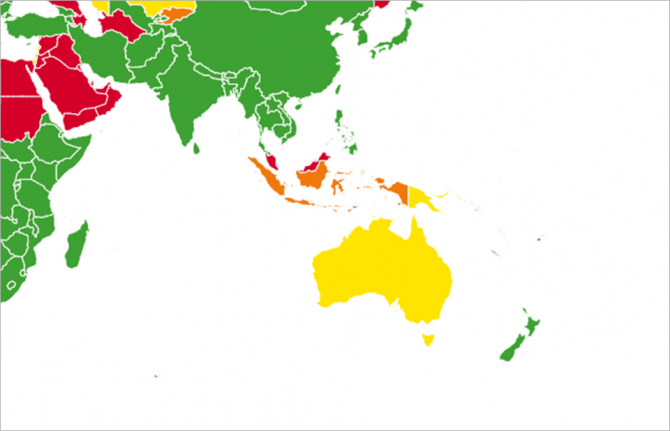

Press Statement
UNAIDS welcomes New Zealand’s decision to lift travel restrictions for people living with HIV
25 October 2021 25 October 2021GENEVA, 25 October 2021—UNAIDS welcomes the announcement by New Zealand that it has removed all travel restrictions for people living with HIV. The recent decision by Immigration New Zealand to remove HIV from the list of medical conditions deemed likely to impose significant costs or demands on New Zealand’s health services means that the blanket ban for people living with HIV to get a resident visa has officially been removed.
“I commend New Zealand for taking this important step and hope that it will encourage other countries to remove all travel restrictions and other policies that discriminate against people living with HIV,” said UNAIDS Executive Director, Winnie Byanyima.
Legislation, policies and practices that prohibit the movement of people living with HIV are discriminatory and frequently limit their opportunity to travel, work and study abroad. UNAIDS advocates for the right to freedom of movement and non-discrimination to end the inequalities faced by people living with HIV. There is no evidence that restrictions on the entry, stay or residence of people living with HIV protect public health.
With the removal of New Zealand’s restrictions, UNAIDS counts 46 countries, territories and areas that continue to impose some form of restriction on the entry, stay and residence of people living with HIV based on their HIV status.
UNAIDS
The Joint United Nations Programme on HIV/AIDS (UNAIDS) leads and inspires the world to achieve its shared vision of zero new HIV infections, zero discrimination and zero AIDS-related deaths. UNAIDS unites the efforts of 11 UN organizations—UNHCR, UNICEF, WFP, UNDP, UNFPA, UNODC, UN Women, ILO, UNESCO, WHO and the World Bank—and works closely with global and national partners towards ending the AIDS epidemic by 2030 as part of the Sustainable Development Goals. Learn more at unaids.org and connect with us on Facebook, Twitter, Instagram and YouTube.
